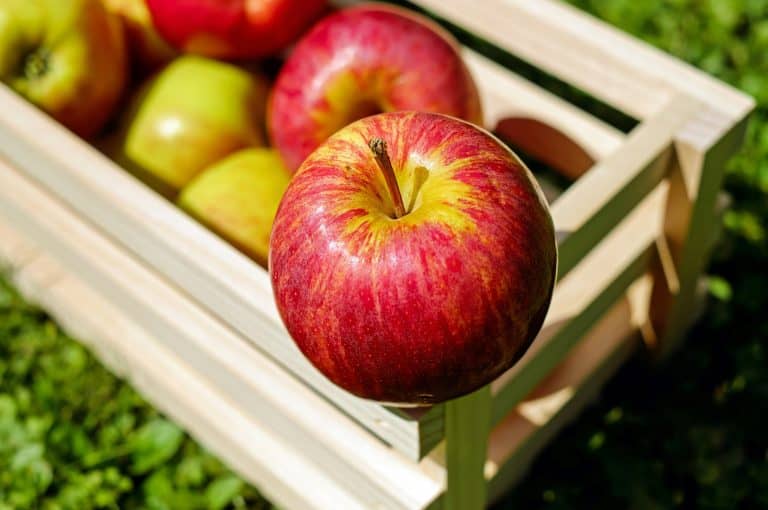Pumpkin is great. Pumpkin is a fall classic. However, there are also healthy fall foods besides pumpkin to try. If you are looking for another squash, you can try butternut squash. Butternut squash has nutrients such as potassium. Other nutrients provided by fall foods include vitamin C, fiber, and beta carotene. Along with various squashes, fruits, root vegetables, and cruciferous vegetables are plentiful during autumn. You can enjoy apples, carrots, and Brussels sprouts at this time of year. Many recipe options are possible. Health benefits are plentiful.
About Fall Foods
Autumn is a time that provides a variety of healthy foods. Stoney Creek Farm explains: “Fall foods carry nutrients your body needs.” Nutritious fall foods include various types of squash. They also include root vegetables. Root vegetables and squash varieties are sources of complex carbohydrates that provide energy gradually. There are also fruit varieties available in the fall. You can select fall fruits that offer good sources of fiber. Additionally, fall foods include cruciferous vegetables. These vegetables can provide a boost to your immune system through vitamin C.
Not only are fall foods healthy, but they are also versatile. Stoney Creek Farm states: “The best part of fall foods is their adaptability.” There are many ways to prepare them. Brussels sprouts can be roasted with olive oil. Pears and apples can be tasty salad ingredients. You can also take a step beyond simply buying and cooking fall foods. If so, you can try growing autumn vegetables via gardening. Stoney Creek Farm enthuses: “If you’re a gardener, fall is a rewarding season.” For instance, harvesting carrots you have grown yourself can be immensely satisfying. You have a personal connection food you grow. Also, this food is fresh and delicious.
Healthy Food to Eat in Fall
Fall is a great time for squash. Butternut squash can be a squash you choose to incorporate into your diet. Stoney Creek Farm advises: “Winter squashes, like butternut…, give you vitamin C, potassium, and fiber.” Butternut squash can be pureed into an amazing fall soup. Autumn is also a wonderful time for vitamin C-rich cruciferous vegetables. You can, for instance, include Brussels sprouts in meals you make during this season. When roasted, Brussels sprouts develop a nutty and sweet flavor. According to Verywell Health, Brussels sprouts are replete with “vitamin K, vitamin C, and antioxidants.”
Fall is also an epic season for root vegetables. Beets and carrots are two examples of fall root vegetables. Beets are great for fiber. Stoney Creek Farm states: “Beets bring boosts of natural nitrates to improve circulation.” Additionally, beets have manganese, folate, and antioxidants. Betalains are the antioxidants found in beets. Carrots also contain fiber. Additionally, carrots have beta carotene. According to Stoney Creek Farm, beta carotene “turns into vitamin A to help immune cells and eyes.”
Autumn is a time for delicious fruit, as well. Apples, cranberries, and pears are three fruit possibilities for this season. Apples have vitamin C and fiber. According to Verywell Health, apples “are especially high in pectin, a soluble fiber.” Pectin helps ensure blood sugar is stable. Pears also offer fiber and vitamin C. Additionally, pears provide potassium. Cranberries, too, have vitamin C. Additionally, according to Stoney Creek Farm, “their polyphenols are excellent for heart health.” Polyphenols are antioxidants. Cranberries can be made into sauce or added to oatmeal.
Overview of Health Benefits of Fall Foods
For healthy food, autumn is a season offering plenty of options. You can find fall foods that are nutritious and tasty. Brussels sprouts, butternut squash, carrots, beets, pears, cranberries, and apples are some examples. All of these options offer essential nutrients. You can incorporate them into your meals in multiple ways. In general, you can find wonderful choices for healthy foods to eat during this season. If you are ambitious, you can also try growing healthy fall foods yourself.
Disclaimer: This article is intended for informational purposes only and does not constitute medical advice, diagnosis, or treatment. Always consult with a qualified healthcare provider regarding any questions or concerns you may have about your health or a medical condition. Never disregard professional medical advice or delay seeking it because of something you’ve read here.







